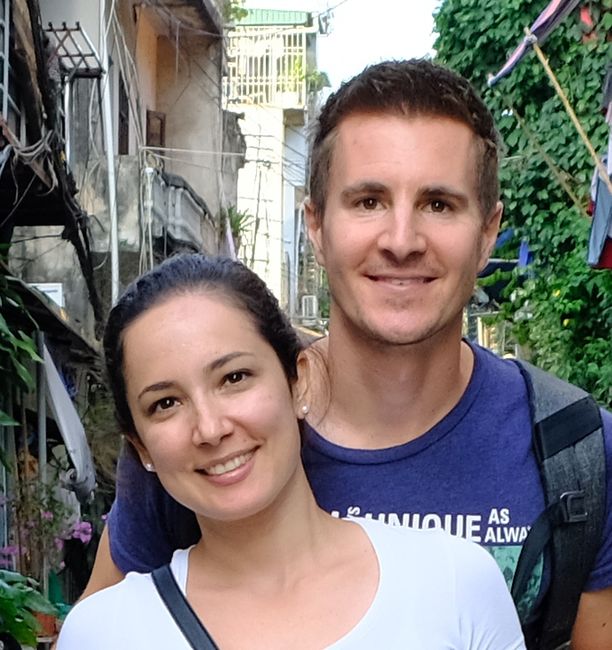Israel, Palestine and Jordan
已发表: 29.09.2018
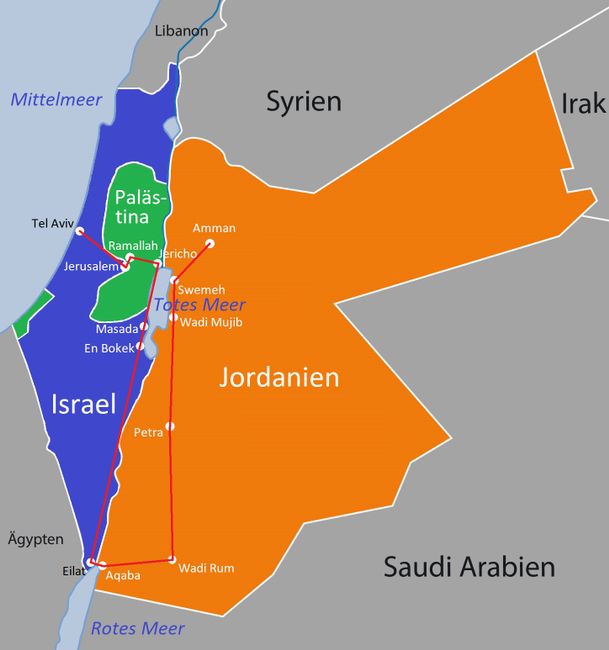
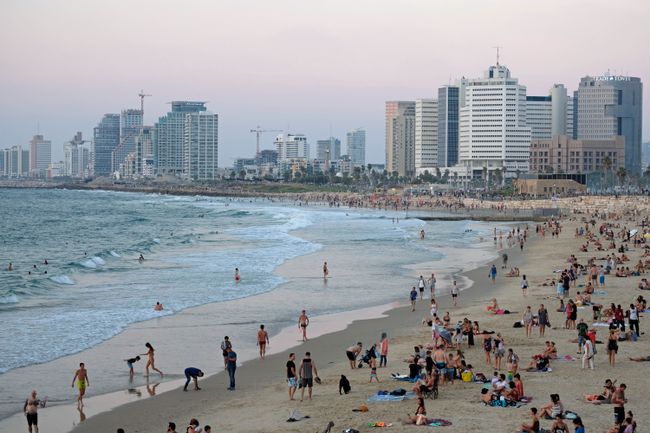
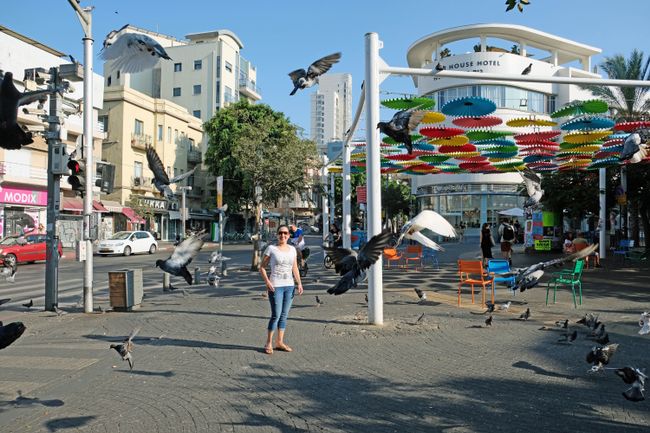
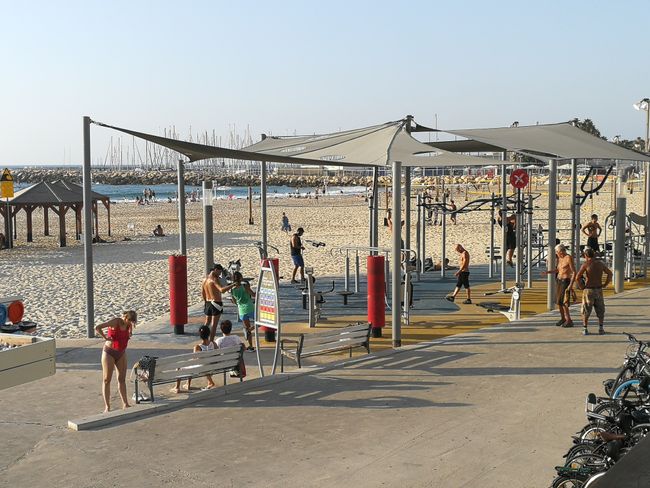
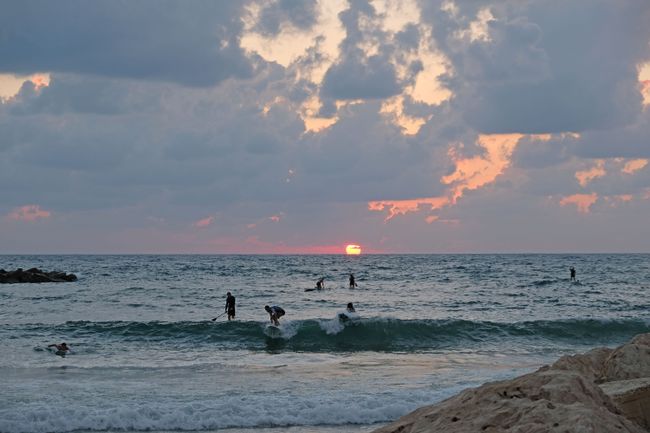
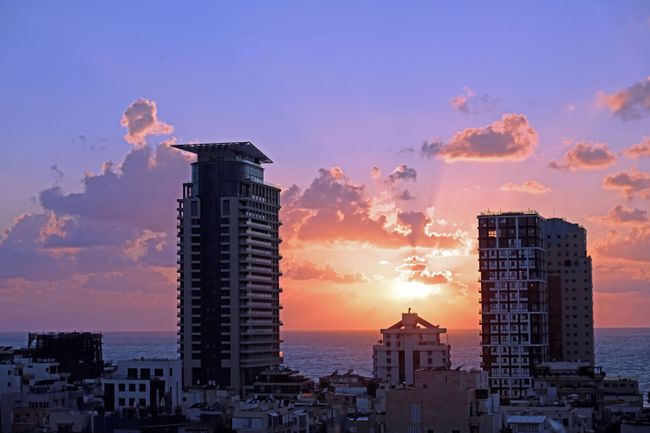
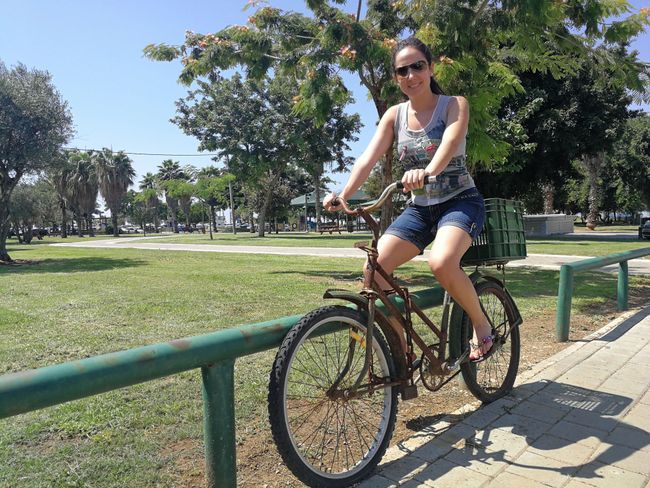
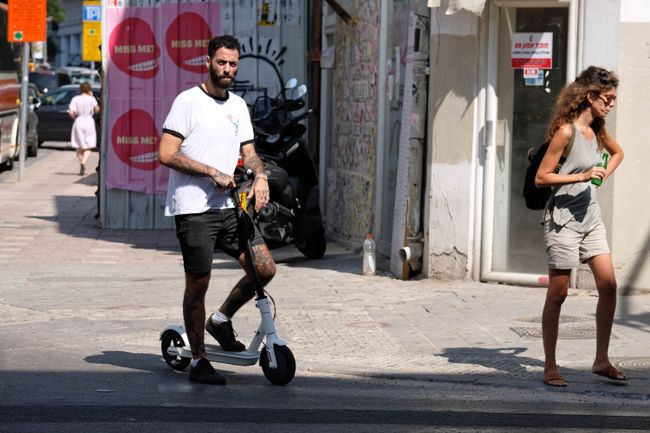
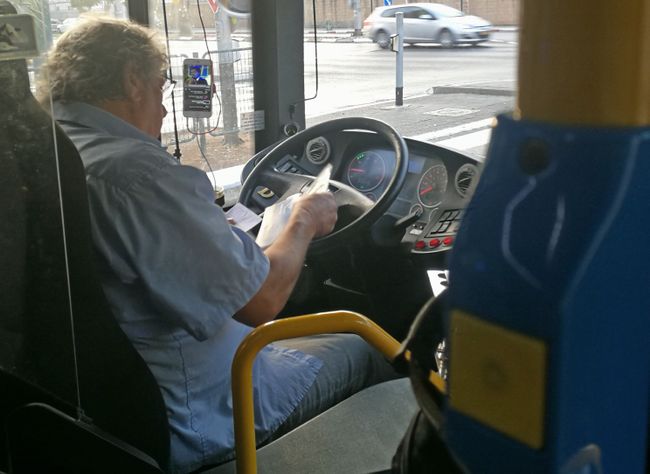
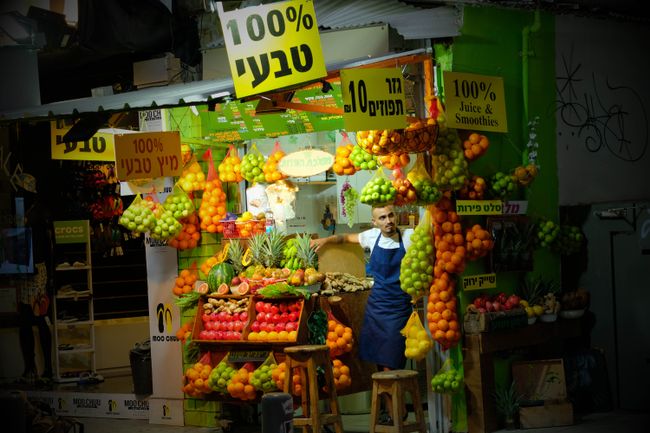
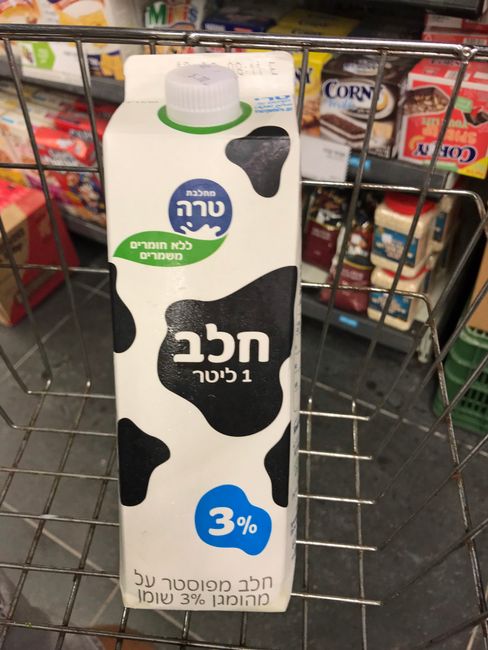
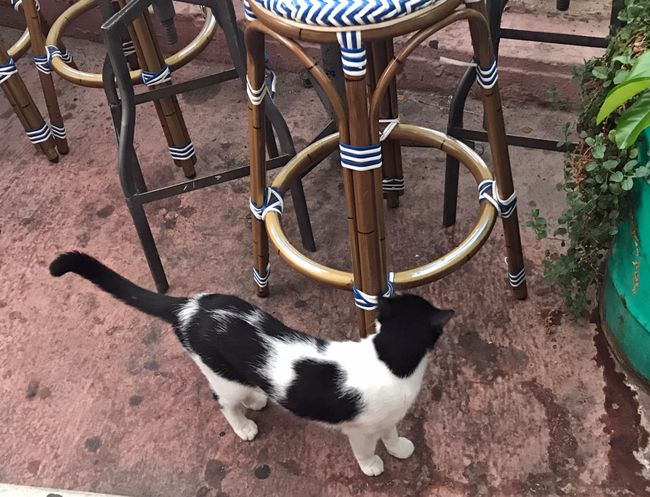
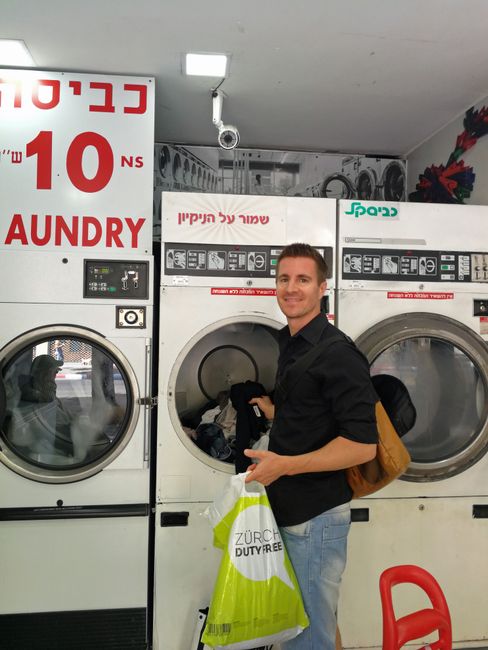
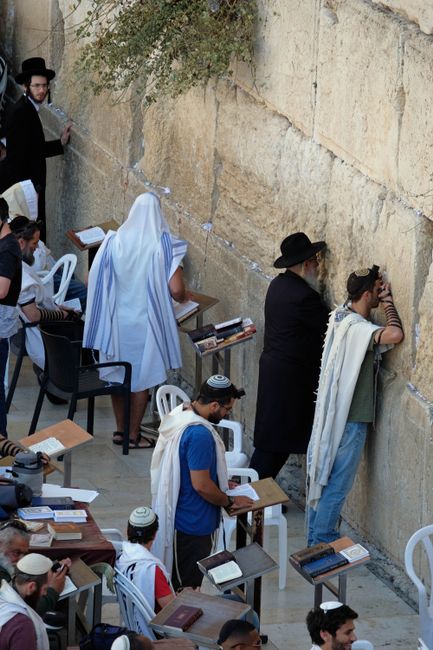
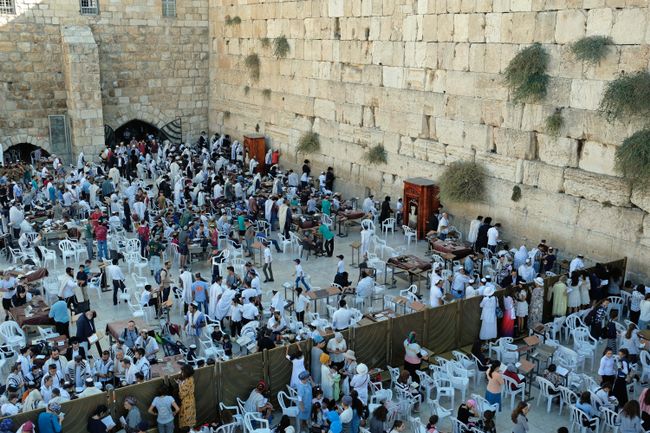
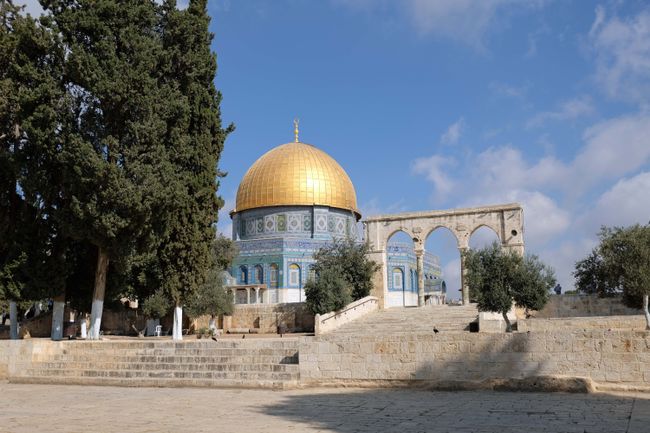
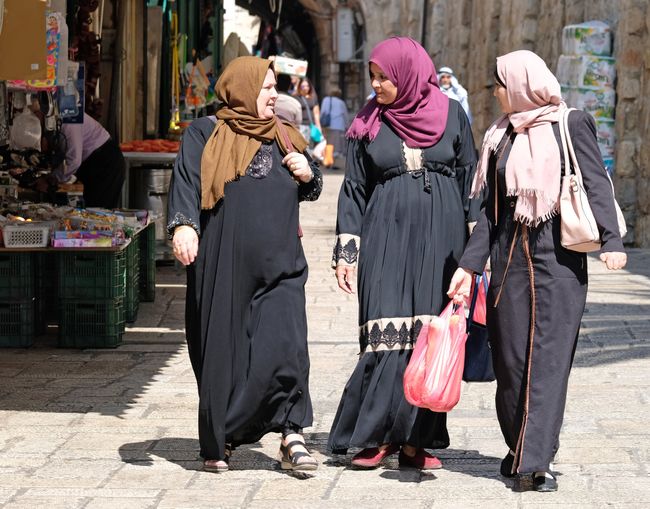
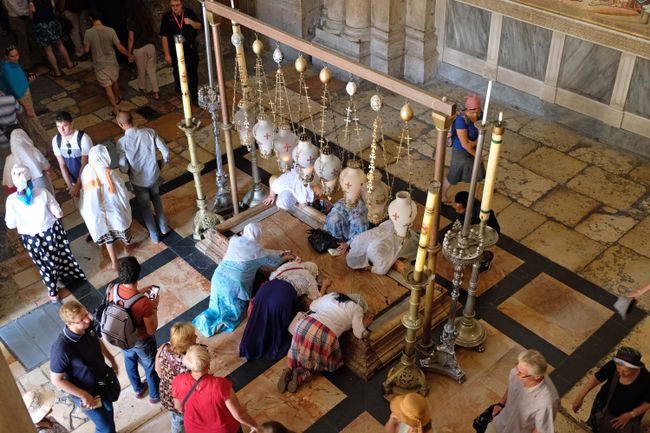
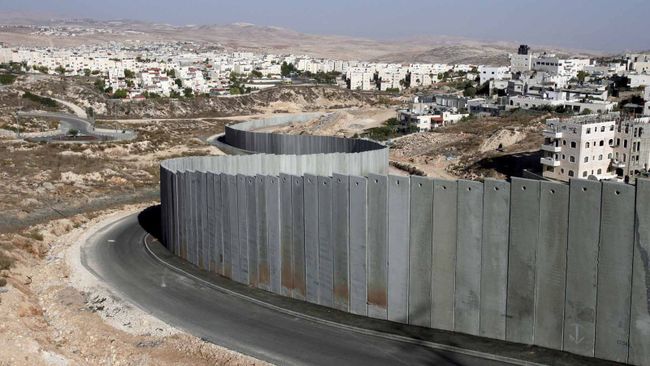
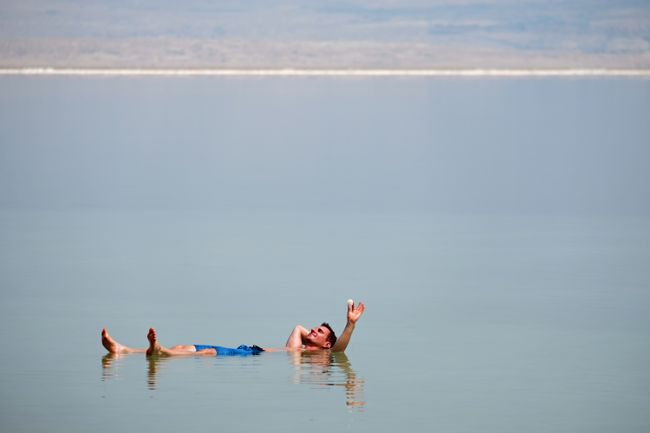
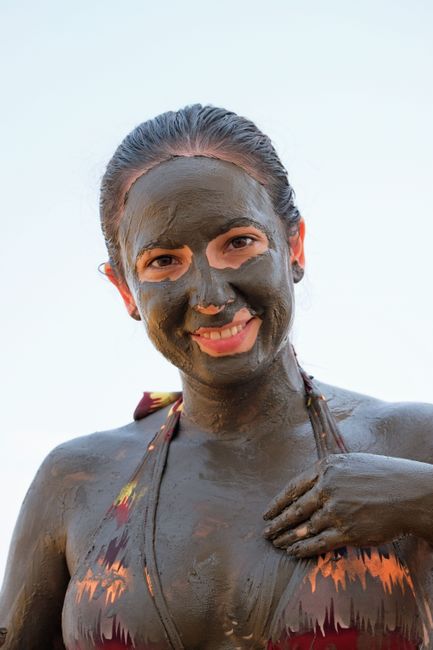
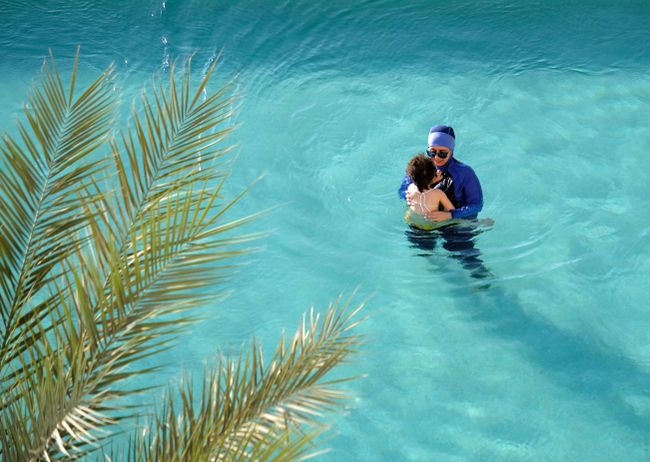
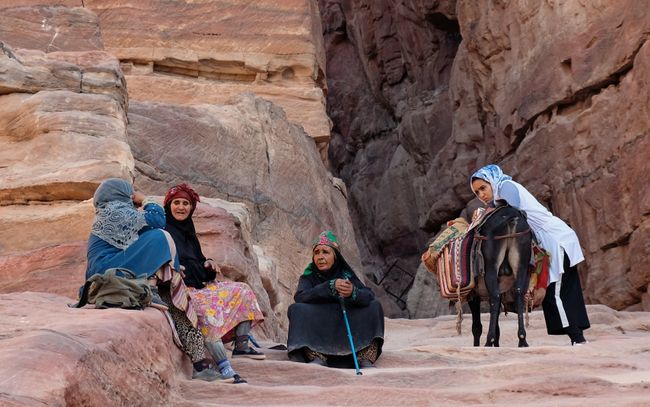
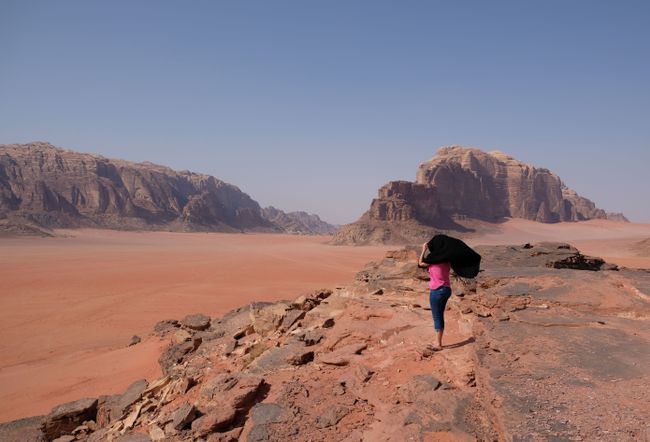
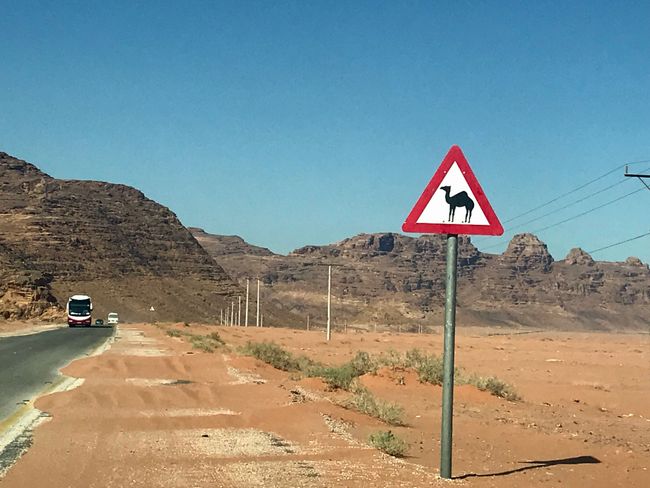
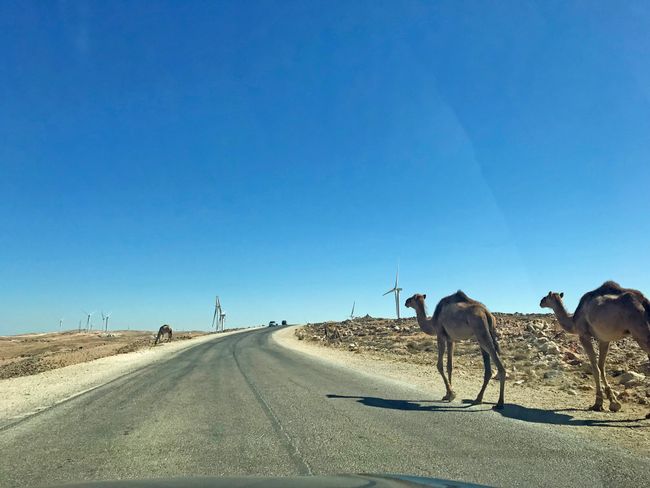
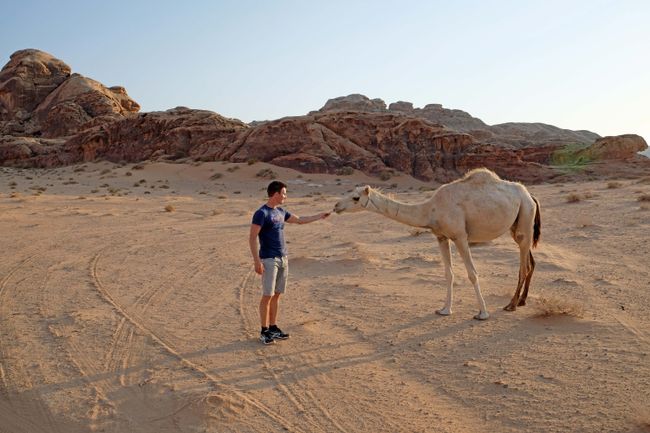
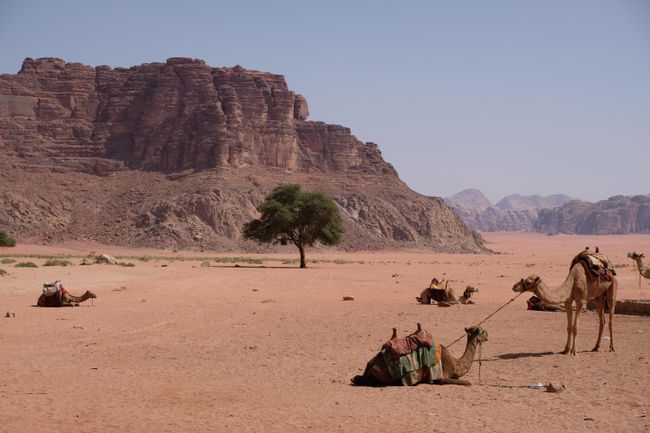
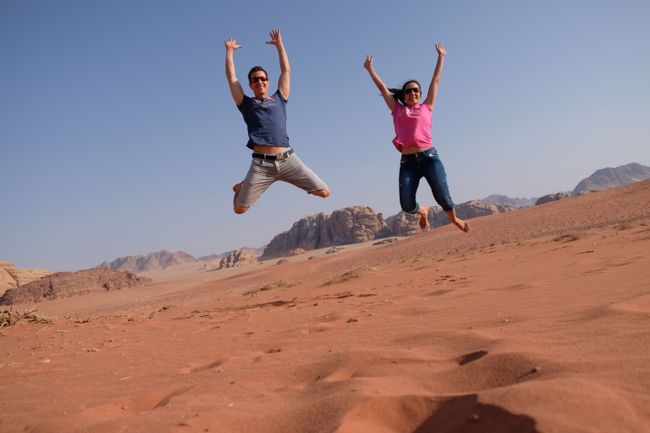
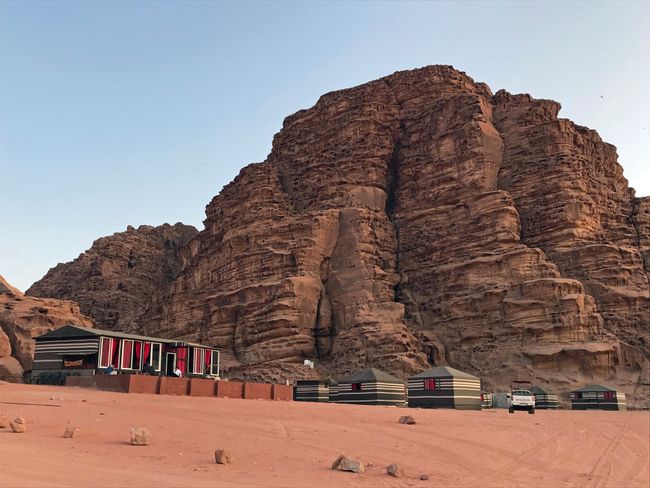
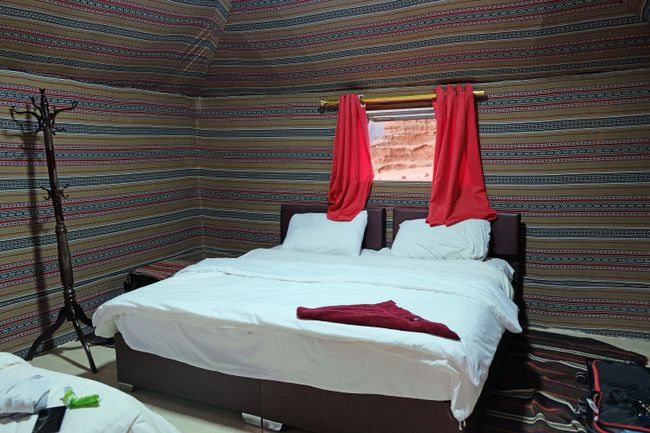
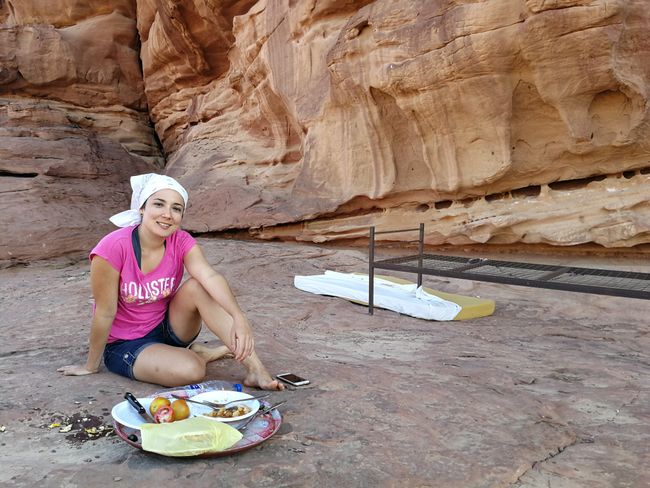
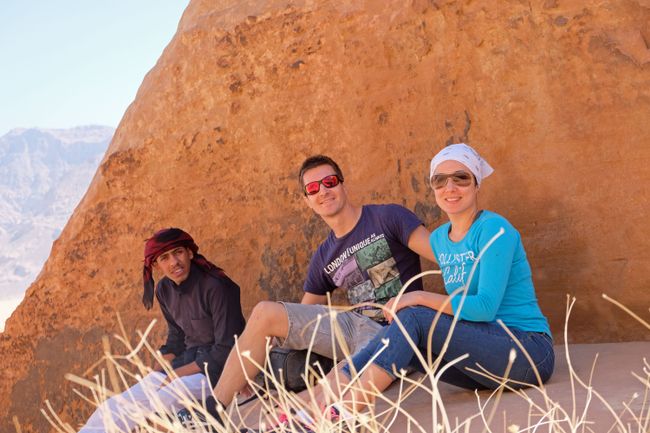
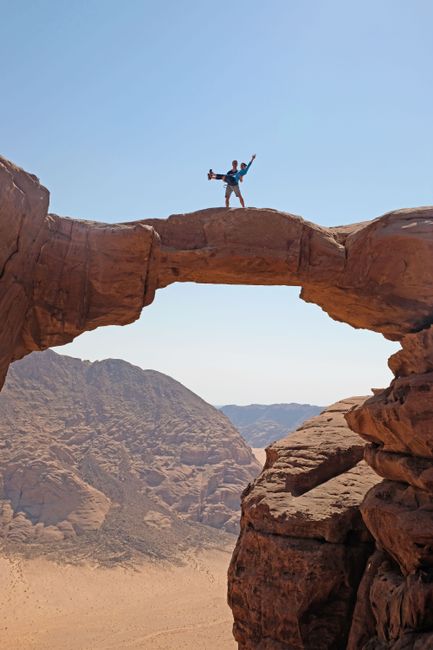
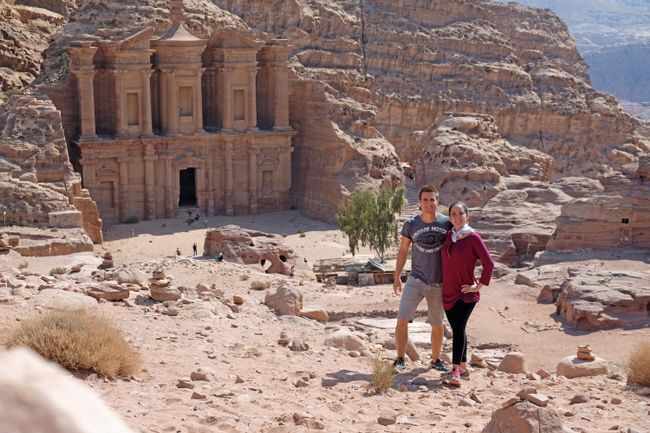
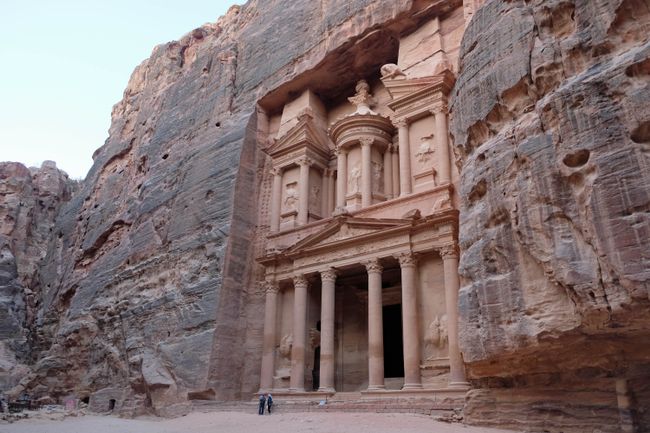
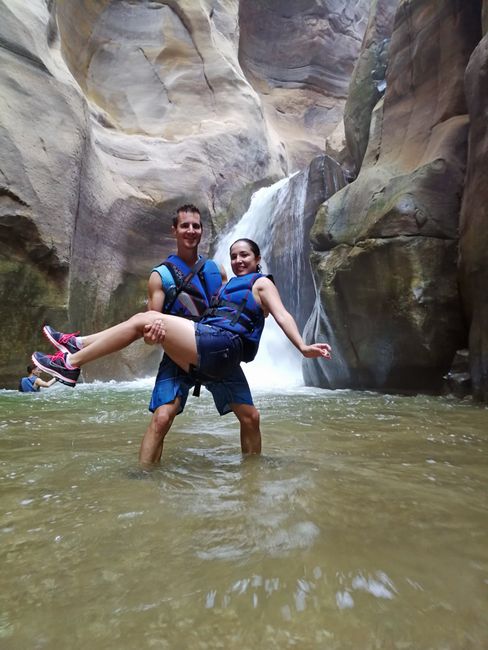
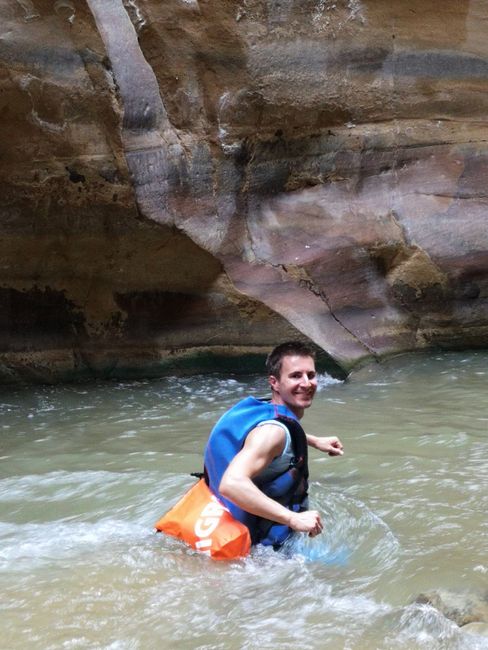
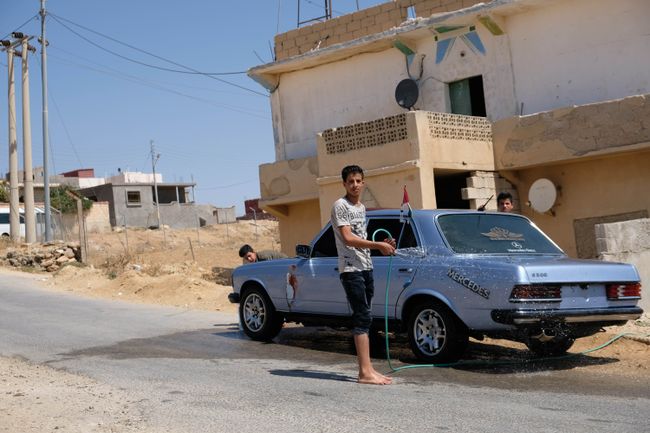
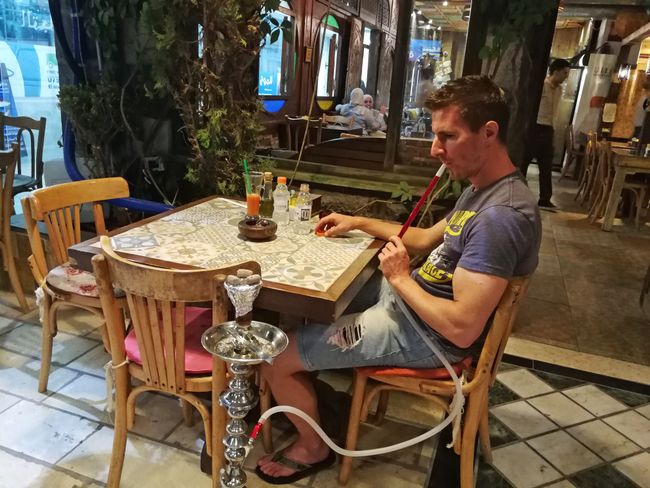
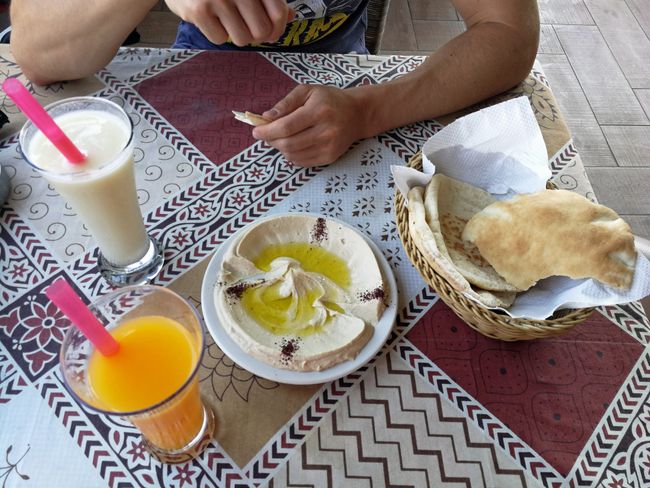
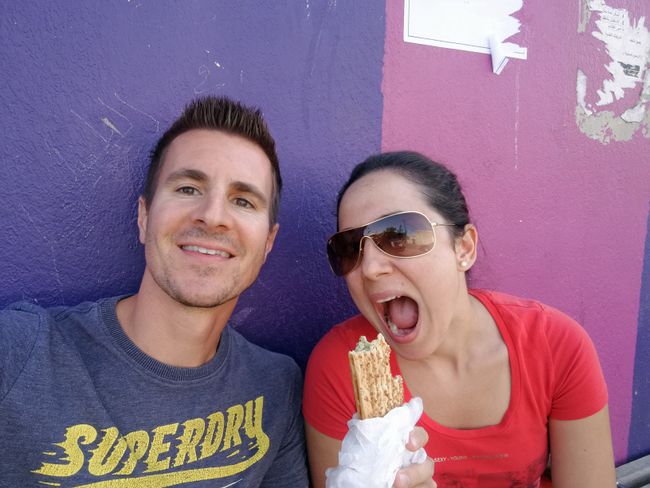
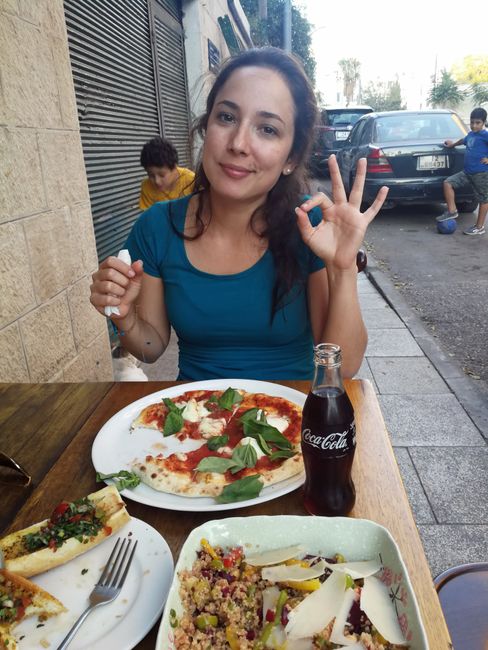
订阅时事通讯
Already at Zurich Airport we notice that things are a little different when traveling to Israel instead of Italy or Spain: At check-in, we are not allowed to lock our suitcases because they will later be opened and inspected again. And at our gate, we, like all other passengers, are questioned for 10 minutes by security personnel about our stay in Israel: what we want to do there, if we are traveling alone, what we do for a living, if we are married, etc. At the end of the interview, our hand luggage is collected and inspected for 5 minutes. Later we find out on YouTube that these "interviewers" are actually called that, all of them are Israeli military personnel who have been trained for years to detect contradictions in passengers' statements and prevent potential terrorist attacks. In view of the many Israel and Jew haters in Israel's neighboring countries, this is certainly a good idea... and so we are not bothered at all when we realize after landing in Tel Aviv that our suitcases were indeed opened and searched.
In Tel Aviv we spend almost 2 weeks in an AirBnB apartment and get to know Israel from a very sympathetic side: it's a hip, young and sports-crazy foodie city. Tel Aviv is about the same size as Zurich, has the Mediterranean Sea on its doorstep and a kilometer-long sandy beach with almost 100 beach volleyball courts. From the beginning, we feel very comfortable, play volleyball with our new Facebook friends almost every day, train Krav Maga (Israeli self-defense), and always eat very well - whether it's street food or a fine restaurant. Another plus point is that we don't stand out as tourists and are mostly addressed in Hebrew. Although on the "Sabbath," the Jewish day of rest, we are quite happy not to belong to the majority of conservative, orthodox, and ultra-orthodox Jews in the country. Because numerous physical exertions are prohibited for them from Friday to Saturday evening, such as tearing off toilet paper or turning on the light switch.
But we also discover numerous similarities between Israel and Switzerland: Both countries have about the same number of people (slightly more than 8 million), about two-thirds of the land area in both countries is uninhabited (in Switzerland because of the mountains, in Israel because of the desert), and also in Israel, there are constantly recruits in military uniforms walking around somewhere. Although there are significantly more in Israel than in Switzerland - for three good reasons: In Israel, women also have to serve in the military, military service in Israel lasts much longer (2-3 years), and many recruits have "only" an office job in the military and therefore spend the evenings at home - accordingly, they are more often on public transport than in Switzerland.
But of course, we also discover numerous differences to our country. The most unfair is: Israelis are on vacation all the time! There are around 40 (!) public holidays per calendar year when no work is done. In the month of our stay alone, New Year, Yom Kippur (the highest holiday), and Sukkot (an important family festival) were celebrated. Combined with the Sabbath and the weekend, this means that in September 2018, the Israelis - without taking any vacation - only have to work for 10 days. The better for us, because in such situations, the Israelis naturally do what we Swiss would do too: take a month off. So we never have to stand in line anywhere in Israel or reserve anything in advance for our excursions. And so our Middle East trip really gets rolling :-)
We visit Jerusalem, the most fascinating and by far the largest city in Israel. According to legend, the revelation of God (the 2 stone tablets of Moses with the 10 commandments) has been kept there for 2,700 years (for Indiana Jones fans: in a wooden box called the "Ark of the Covenant"). It forms the common foundation of the three largest world religions of our time (Judaism, Christianity, and Islam). Since they all have their origins in Jerusalem, accordingly many Jews, Christians, and Muslims make a pilgrimage there every year. The Jews to the Western Wall, the Christians to the tomb of Jesus, and the Muslims to the Dome of the Rock. This adds up to 4 million people per year (for beer-believers: the Oktoberfest in Munich attracts 6 million visitors annually - in one month). Since these 3 holy places are located within a radius of 400 meters, the atmosphere in Jerusalem is always somewhat tense. Despite the enormous security presence, unfortunately, there are always deadly clashes here, especially between Israelis and Palestinians.
Which brings us to our next destination: The so-called "West Bank" or Palestine is located around Jerusalem. 137 out of 193 UN member states recognize this area (including the Gaza Strip) as a sovereign state - Switzerland, by the way, does not. Israel is also not recognized as a state by about the same number of UN member states - including Cuba, by the way. In our Lonely Planet travel guide, however, we read that a trip to the West Bank is worthwhile and safe for tourists, among other things, because the moderate Fatah and not (as in the Gaza Strip) the radical Islamic Hamas is in control there. Nevertheless, we have a bad feeling because we do not know enough about the current political situation. Sensible as we are, we therefore get a second opinion from our new friends in Tel Aviv. We probably should have stayed away! The feedback ranges from a moderate "I wouldn't even think of traveling there" to "Are you suicidal or what?!"
After some persuasion, Marco can still motivate Yumi to travel to Palestine to see and form her own opinion. And because it's best to do that individually, we forego an organized tour and instead take bus #218 from Jerusalem to Ramallah. Our spirit of adventure combined with a touch of naivety leads to us being the only tourists on the bus. So far, so good. However, the bus ride through the military checkpoints and past the Jewish settlements in the West Bank becomes increasingly uncomfortable. The Jewish settlements are surrounded by barbed wire fences and an 8-meter high wall. Originally, the Jewish settlements were only secured with a fence, the wall was added after the second Intifada - as additional protection against Palestinian snipers firing at Jewish soldiers and settlers. Just at that moment, we remember that we were constantly addressed in Hebrew in Tel Aviv. And we remember the lines in the Lonely Planet that there should be passport control when entering Palestine... and that Switzerland does not recognize Palestine. To our surprise, however, no one speaks to us and no one wants to see our passport. On the contrary, our bus is casually waved through by the Israeli security forces, and 30 minutes later, we are in the city center of Ramallah.
Ramallah, the unofficial capital of Palestine, presents itself pretty much as we imagined: the streets are mainly populated by men, and 90% of the women walking around are veiled. We stroll along the main streets in search of an inviting café where we can sit down and do a little people watching - but without success. After half an hour of wandering around in 40-degree heat, we slowly realize why there are no outdoor cafés - who wants to sit outside in this heat! Slightly frustrated, we give up, as we are slowly wilting and need to use the restroom, and we search for the nearest restaurant. We end up in a small room with 3 tables, 6 chairs, a kitchen, and 3 Palestinians working in the kitchen. A man and the two women who are preparing something in the small kitchen look at us in surprise. We politely ask in English if they have coffee on offer, and they respond with a smile and their hands, indicating that we are welcome and should come in. In a blink of an eye, we sit at the table and hot coffee is immediately served, along with a piece of cake. Of course, we are also allowed to use the toilet behind the kitchen. It is only now that we slowly realize that the place is not an indoor café at all, but some kind of food courier. The coffee they serve us is not even on the menu, they simply always have it on hand. And the idea is not for us to order or pay for anything, but we have just been invited by a Palestinian family as "helpers" for coffee and cake! As we later learn, this is a minimum of hospitality for Palestinians in such a situation. This probably also explains why they repeatedly refuse our offer to pay and shortly thereafter hand us a business card from a local shoemaker, who warmly invites us to be driven and picked up anywhere in Palestine (also free of charge) in case we get lost.
Fortunately, that doesn't happen. Our Palestine tour continues in Jericho, where we will have even more exciting encounters with Palestinians. We obediently follow the Lonely Planet's recommendation to avoid discussing political topics with the locals. But somehow, it always turns out differently: The young, sympathetic man in the abandoned tourist office in Jericho tells us after 30 seconds that it is a shame that the Palestinians had their land taken away from the Jews in 1948 (with the founding of Israel)... that his grandparents were expelled... and that all Palestinians have been prisoners in their own land ever since. He goes on to explain that Palestine is a very open and welcoming country and welcomes everyone to enter. We can confirm this from our own experience after just a few hours in Palestine! Then the young man continues, saying that it is unfair and wrong to brand all Palestinians in the Western world as terrorists and to isolate them from the world with walls. The young man, who has never left the West Bank in his entire life, speaks very good English and wants to travel the world - but cannot - makes us feel quite sorry for him.
A short time later, we meet a man named Samer. Since he is also involved in tourism as a souvenir seller, he is at least as bored as the young man earlier - because there are practically no tourists in Jericho apart from us. We quickly get into a conversation, quickly get a free coffee again, and hear the same lament after 30 seconds: expelled, imprisoned, unjustly stigmatized as terrorists - all while being open and hospitable. Then suddenly, there is a surprising twist that makes our eyebrows raise for a moment, while we continue to listen to Samer smiling and nodding: "The Islamic State and ISIS fighters are not real, but an invention of the Americans and Israelis to stigmatize all Arabs as terrorists in the Western media." After a few "Aha's" and "OK's" on our part, we tell Samer, who is still very nice and trustworthy, that we need to continue to the Dead Sea. One phone call and 2 minutes later, his colleague Raed is at the door, who is happy to drive us to the correct bus station in his car.
Again, Raed repeats the statements of his predecessors, talking about the injustice of categorizing all Palestinians as terrorists and makes an appeal to us: we should tell the world that the Palestinians are very kind, open, hospitable, and helpful. "We even live peacefully with the Christians in our country," says Raed with a smile. So far, so good. Then Raed becomes serious: "Only these greedy fucking Jews are not welcome here! These Zionist pigs have taken away our land and spread like a plague all over the world!". After a brief moment of doubt about whether we are really on the way to the bus stop, we are amazed at his lack of differentiation towards "the Jews," especially since the same Raed told us a minute ago how unfair it is to lump "the Palestinians" together. However, over time we realize where his attitude comes from: He tells us that he has been in prison twice because he shot at Israeli soldiers during both intifadas. We quickly check our phones with GPS to make sure we are really on the right way to the bus stop. Yes, we are. At the end of the ride, Raed warmly invites us to visit his family and his children with our children next time we are in the area. "Of course!" we say goodbye and hope that a bus will take us back to Israel as soon as possible.
Oh, before we forget to fulfill our promise: the Palestinians are really very nice, open, hospitable, and helpful! But unfortunately, it is also true that they (yes, all of them!) have been suffering from a collective trauma since the founding of Israel - for three generations - that dominates their lives.
A few days later, we travel from Tel Aviv to Amman by land. Our journey through Israel, Palestine, and Jordan lasts 3 weeks.
A large part of our time is spent on the beach in Tel Aviv.
Tel Aviv is a vibrant city and home to many colorful characters.
The residents of Tel Aviv like to stay active and participate in sports such as jogging, weight training, and beach volleyball.
Stand-up paddleboarding and surfing are also quite popular.
The view from our AirBnB apartment in Tel Aviv.
The wise traveler in Tel Aviv does not travel by train, but by bike.
The (even) crazier people in Tel Aviv use electric scooters.
Bus rides can be dangerous, especially if the driver is watching YouTube and taking care of his tasks at the same time.
Staying healthy in Tel Aviv is not a problem.
Since many things are only written in Hebrew, we have to rely on visual language when buying (cow) milk...
A few minutes later, we are no longer sure what kind of milk we just bought :-)
Since Marco will soon run out of fresh T-shirts, he just has to go to the laundromat in a shirt.
In Jerusalem, young and old Jews pray together at the Western Wall.
However, men and women are separated and are not allowed to pray together.
Above the Western Wall is the Dome of the Rock, an important sanctuary for Muslims.
Accordingly, many Muslims can be found in the "divided city" of Jerusalem.
The Christians also make pilgrimages to Jerusalem, for example, to the stone where Jesus was anointed after his crucifixion.
A Jewish settlement in the West Bank, which is meant to be protected from Palestinian attacks by a separation wall.
The Dead Sea is actually a lake and is located 420 meters below sea level.
In addition to its high salt content, the Dead Sea is known for its mineral-rich mud packs.
You can also effectively protect yourself from sunburn with a burkini.
In Jordan, not only older women walk around veiled.
Yumi initially has a bit of trouble wrapping her headscarf correctly.
You have to watch out for potholes on Jordan's roads.
The camels or dromedaries also have the right of way, just like the cars.
Especially in the desert, camels are practical means of transportation for the Bedouins.
Since there are only a few sources of water in the desert, the camels usually don't get lost.
The desert landscape in Wadi Rum is spectacular, but you quickly get hot feet.
In the desert, there are about 40 Bedouin camps - this one is ours.
For tourists, the Bedouin tents have been equipped with comfortable double beds.
But during the day, we are also satisfied with simpler beds... as long as there is shade!
In the picture on the left, the young Bedouin Idris, who introduces us to his desert and his life while climbing.
The sandstone mountains boast spectacular rock formations.
The ancient city of Petra is no less spectacular.
The city used to be very wealthy (lol) and invested a lot of time and money in creating tombs and temples.
After the hot days in the desert, we cool off while canyoning in Wadi Mujib.
Of course, accompanied by the Migros swim bag.
One of our highlights is also the encounters with the local people.
Accordingly, we make an effort to integrate.
Hummus, pita bread, and fresh juices are part of our staple diet.
Just like falafel.
After 3 weeks in the Middle East, Yumi is happy to enjoy a proper pizza and a coke in Amman :-)
订阅时事通讯
回答 (1)
Jessica
Hallo ihr zwei!!!
Wow en super spannende, luschtige und interessante bitrag.
S'beschte woni mir ha chöne merke isch das mit de ferie und 40 fiertigä😁👌 (nur scho wäge dem überleg ich mir uszwandere😝).
Die gastfründlichkeit und herzlichkeit isch unglaublich..bin ehrlichgseit extrem überrascht.
Haha de schäferhund😂...han de gsichtsusdruck vo de yumi vor mine auge gha wonis glasä han (han so müesse lache). Die supercooli idee vom marco mit dem insektespray isch natürli hervorragend gsi.. hahaha..die szene hani mir au bildlich vorgstellt und wieder soooo müesse lache😂.
Ich wünsch eu witerhi ganz viel spannendi und interessanti momänt wie bis jetzt. Hebed eu sorg... ich freu mich scho uf de nögscht bitrag!!! Besitos para los dos... divertiros!!!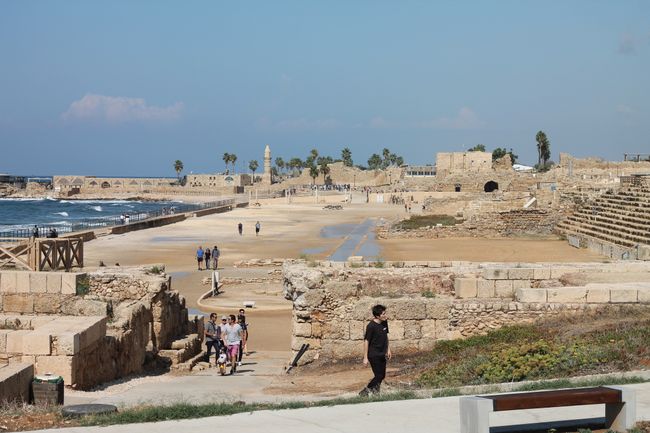
旅行报告以色列

